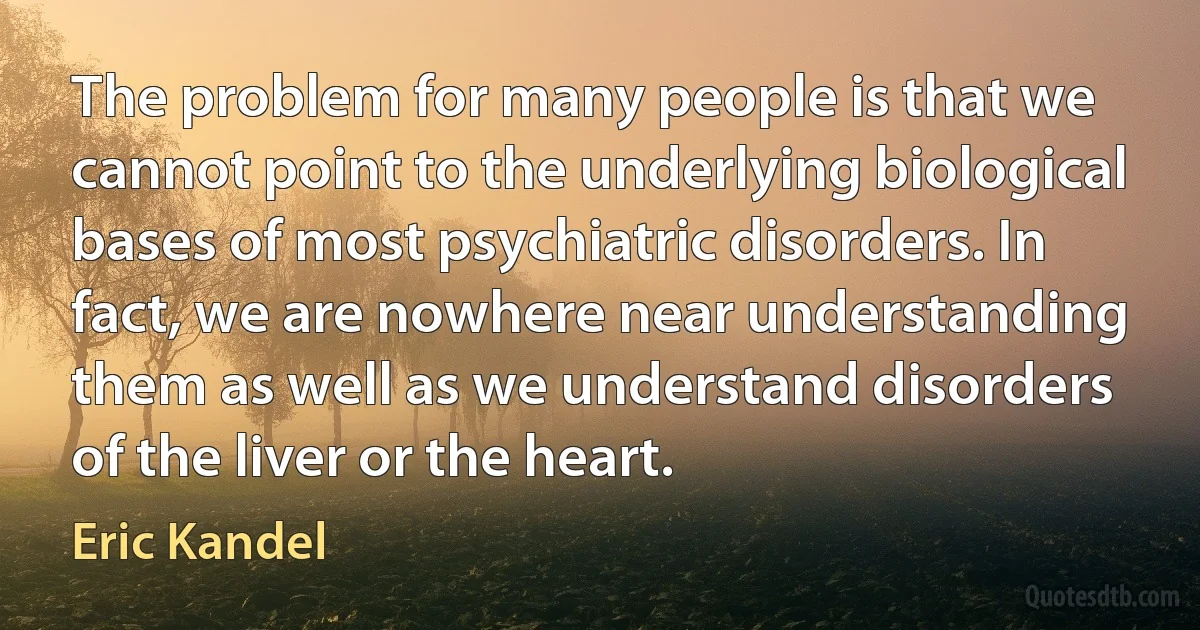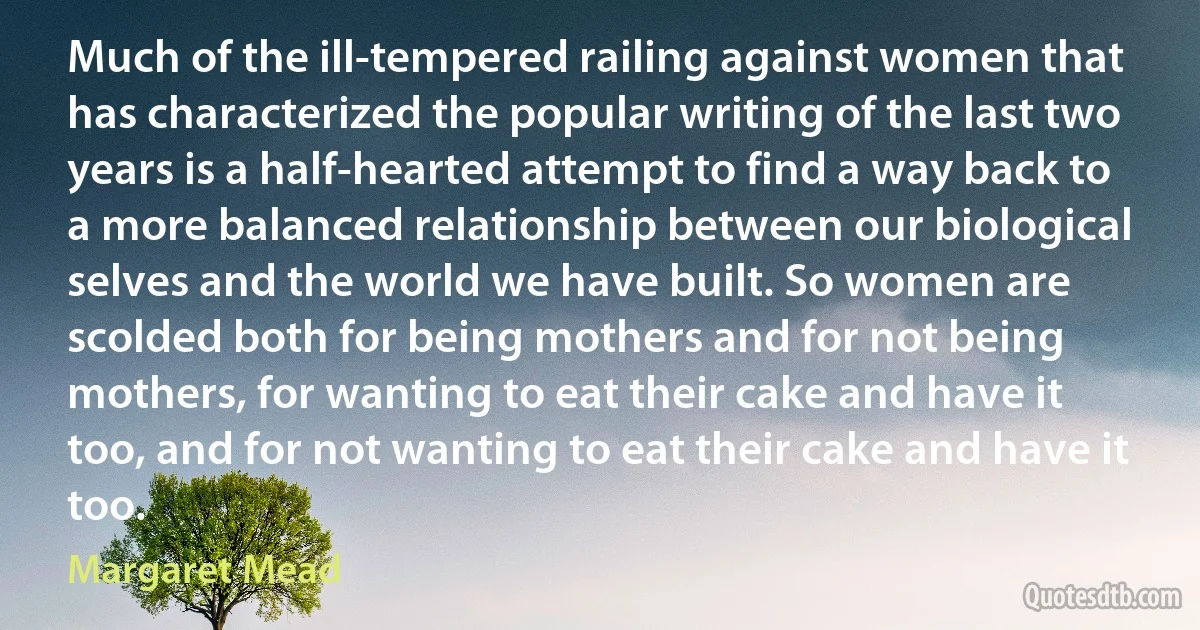Biological Quotes - page 15
Terrorism is a biological consequence of the multinationals, just as a day of fever is the reasonable price of an effective vaccine ... The conflict is between great powers, not between demons and heroes. Unhappily, therefore, is the nation that finds the 'heroes' underfoot, especially if they still think in religious terms and involve the population in their bloody ascent to an uninhabited paradise.

Umberto Eco
As a professor in two fields, neurology and psychiatry, I am fully aware of the extent to which man is subject to biological, psychological and sociological conditions. But in addition to being a professor in two fields I am a survivor of four camps - concentration camps, that is - and as such I also bear witness to the unexpected extent to which man is capable of defying and braving even the worst conditions conceivable.

Viktor Frankl
The idea that humans form pair bonds, and that males often invest in their young, has a long history in biological anthropology. Early incarnations of the idea were criticized for painting an overly simplistic picture, according to which "Man the Hunter” provisioned his dependent wife and children with meat in a stable nuclear family, suspiciously reminiscent of a 1950s-style Western family. However, with appropriate amendments and qualifications, the idea that pair bonding and biparental care are a central part of our evolutionary endowment appears to be viable.

Steve Stewart-Williams
When human beings have been fascinated by the contemplation of their own hearts, the more intricate biological pattern of the female has become a model for the artist, the mystic, and the saint. When mankind turns instead to what can be done, altered, built, invented, in the outer world, all natural properties of men, animals, or metals become handicaps to be altered rather than clues to be followed.

Margaret Mead
If combat means living in a ditch, females have biological problems staying in a ditch for thirty days because they get infections and they don't have upper body strength. I mean, some do, but they're relatively rare. On the other hand, men are basically little piglets, you drop them in the ditch, they roll around in it, doesn't matter, you know. These things are very real. On the other hand, if combat means being on an Aegis-class cruiser managing the computer controls for twelve ships and their rockets, a female may be again dramatically better than a male who gets very, very frustrated sitting in a chair all the time because males are biologically driven to go out and hunt giraffes.

Newt Gingrich
Lacan conceives the difference between the two deaths as the difference being real (biological) death and its symbolization, the settling of accounts the accomplishment of symbolic destiny (deathbed confession in Catholicism, for example). This gap can be filled in various ways; it can contain either sublime beauty or fearsome monsters: in Antigone's case, her symbolic death, her exclusion from the symbolic community of the city, precedes her actual death and imbues her character with sublime beauty, whereas the ghost of Hamlet's father represents the opposite case, - actual death unaccompanied by symbolic death, without a settling of accounts - which is why he returns as a frightful apparition until his debt has been repaid. This place between the two deaths, a place of sublime beauty as well as terrifying monsters, is the site of das Ding, of the real-traumatic Kernel in the midst of symbolic order.

Slavoj Žižek



